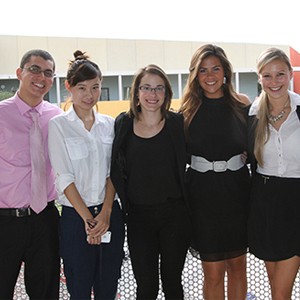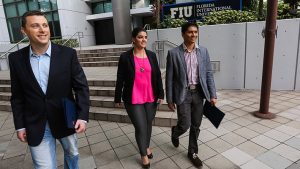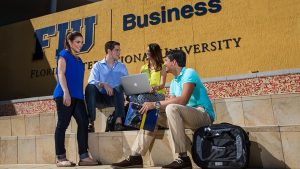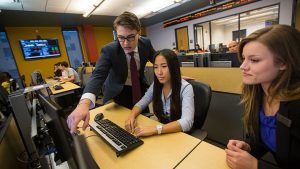In business and in life, it’s human nature to jump quickly to what seems to be the easiest solution to a complex problem. College of Business graduate students participating in the Master of International Business (MIB) research project course are learning to look (and think) before they leap.
As part of the process, not only do they get the opportunity to engage with a real company with real problems—but they also go through the rigorous paces required to properly design a research project, implement that design and report their findings and recommendations.
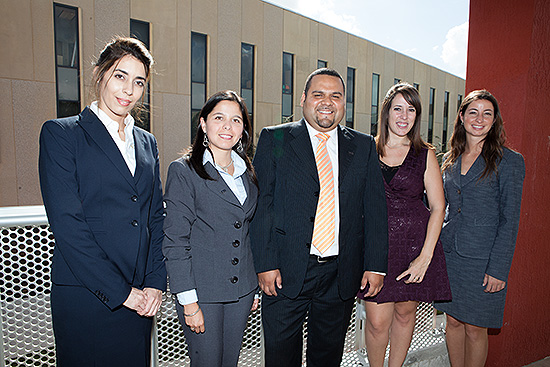
Tyler Helms, one of five students in a fall semester project team, appreciates the real-world experience gained as the team examined the inventory challenges being faced by a local company with international customers and a large global supply chain.
“Throughout the semester, we met with the client’s marketing group to better understand their current situation,” he said. “Ultimately, we narrowed down the focus of our research to helping them improve forecasting and demand planning.”
A three-step research process helps bridge ideas into action.
As a first step, Helms and teammates Ines Medved, Monica Rosa, Catalina Sanchez and Rodolfo Vollmer developed a clear statement of the problem and outlined what information was needed to solve it.
Next came a report that outlined the research design.
“We were prompted to be very specific about what kind of research we were going to collect and analyze as part of our process,” Helms said.
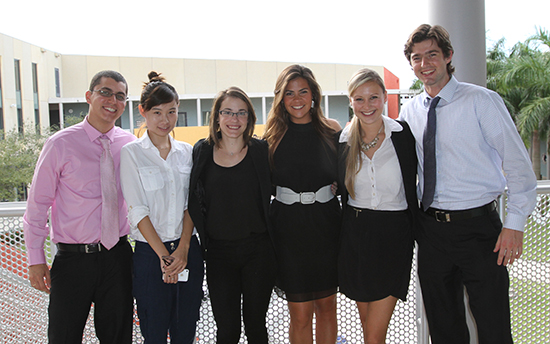
The focus was on secondary research, including making full use of the proprietary databases, dissertations and articles available in the Florida International University (FIU) library.
For the third step, the student team presented their recommendations to a group of college faculty, including Stephen Barnett, executive faculty director, MBA Programs.
“I was impressed and humbled by the faculty review group, which included several department heads,” Helms said. “Their feedback was extremely helpful as we prepare the final proposal to our client.”
Helms finds that working on this kind of real-world project—where your conduct professional-level research and make recommendations to your client from an unbiased point of view—a “tremendous experience, a true capstone to the graduate program.”


